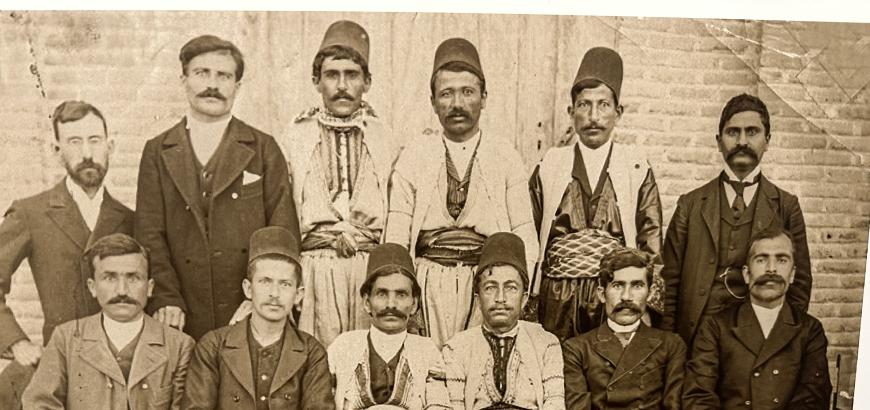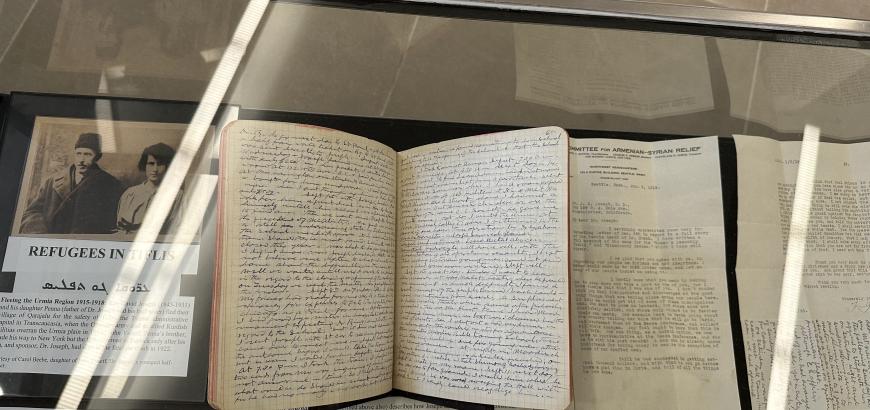Thanks in part to the efforts of history professor Arbella Bet-Shlimon, UW Libraries was chosen to host an exciting new exhibit on modern Assyrian history.
The exhibit, Assyrians from Persia (Iran) to the United States, 1887–1923: Assyrian Education, American Missionaries, and the Search for a Home, tells the story of modern Assyrian history, migration, and displacement using rare original source materials originating from the Assyrian community in the Lake Urmia region of Iran. It opened in the UW’s Allen Library on November 7 and will remain on display through December 9.
Assyrians are an ethnic group whose indigenous homeland is divided between Iraq, Turkey, Syria, and Iran. Many Assyrians were uprooted and displaced during World War I and its aftermath. Yet, historians are still working to reconstruct the record of these events and to recover the voices of those who lived through it.
With this exhibition, curators Eden Naby and Vladimir Moghaddasi take an important step in this direction. Their display focuses on letters, a diary, and other materials preserved by the descendants of Joseph David Joseph, an Assyrian doctor who kept a meticulous record of his life for more than thirty years. The materials document his time at a missionary school in Iran and his later travels to the United States for medical training. Using Joseph as the centerpiece, the exhibit sheds light on the larger story of Assyrian oppression, which culminated in genocide by the Ottoman Empire during World War I.
The exhibit, which initially debuted in Sunnyvale, California, is planned to visit a number of universities and urban locations. The UW was fortunate to be chosen as the first stop in this tour, largely through the efforts of professor Arbella Bet-Shlimon. Bet-Shlimon is not only a professor of Middle Eastern history, she also has personal ties to the exhibit through her own Assyrian heritage. So although her own research does not focus on Assyrian history per se, she’s excited to acquaint attendees with Assyrian perspectives on Middle Eastern history, especially because her positionality as an Assyrian informs her own work. She also notes that because Dr. Joseph wrote his diary in English, it offers insights into the Assyrian experience that are particularly accessible to lay audiences in America.
The exhibit opened with a talk by David Woodward—a UW history and Middle East Language and cultures alum and a descendant of missionaries in the region—discussing the complex relationship of U.S. missionaries and the Assyrian diaspora. After the UW, curators expect the exhibit will move on to Chicago, the U.S. city with the largest Assyrian population.

